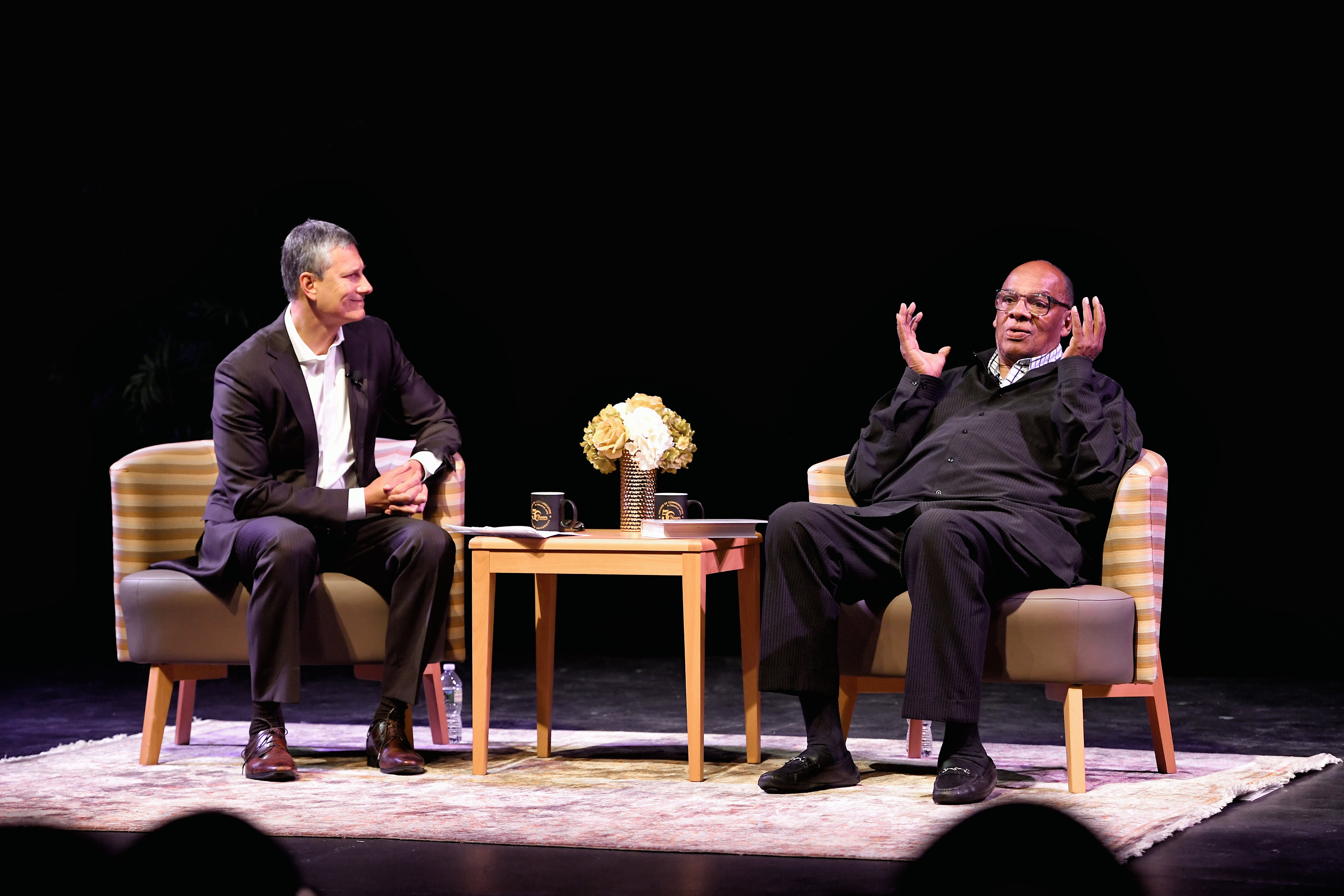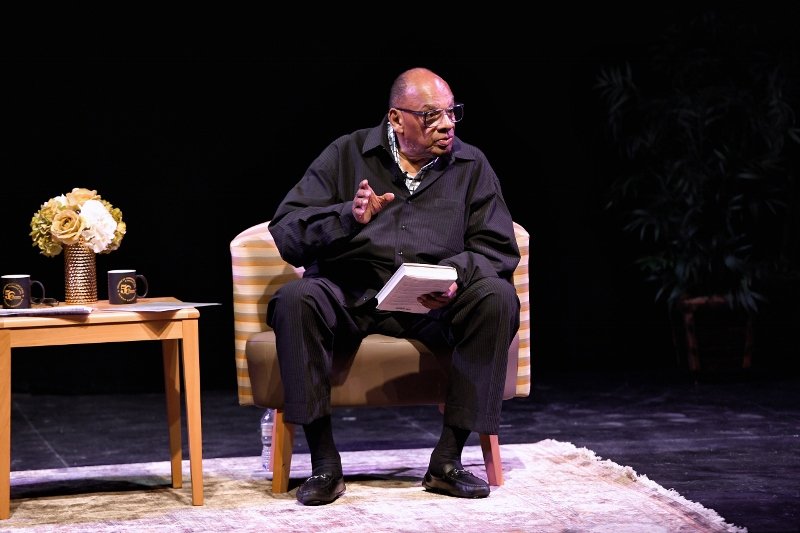Keeper of “Dream” speech, basketball great and businessman helps launch Rowan Sports Comm program
Keeper of “Dream” speech, basketball great and businessman helps launch Rowan Sports Comm program

Sometimes, you just have to ask.
That was one of many life lessons that George Raveling, keeper of the sole, original copy of Dr. Martin Luther King Jr.’s “I Have a Dream” speech, imparted during an appearance in Rowan’s Tohill Theater Oct. 30.
Raveling, a former college and U.S. Olympic basketball coach who has been inducted into two Halls of Fame and is the former Director of International Basketball for Nike, came to Rowan at the behest of Dr. John Giannini, a celebrated former basketball coach in his own right who led the Profs to the NCAA Division III championship in 1996 and who returned this year to lead the new Center for Sports Communication & Social Impact.
The center, which resides within the College of Communication & Creative Arts, was created in part to bring in speakers to inspire sports communication students and, for more than two hours, Raveling enthralled the packed auditorium with stories of life, coaching, travelling the world for Nike, and reading.
But first he told how he came to possess the “Dream” speech.
On August 28, 1963, the day King delivered his address from the steps of the Lincoln Memorial, Raveling, a recent Villanova graduate and former star basketball player, had not even planned to attend the Washington, D.C. rally but a friend’s father persuaded the two young men to go.
In Washington, Raveling and his friend volunteered to serve as security for the pastor, one of 12 speakers on the docket, and, because of their size – both men were 6 foot 4 – they were asked to sit on stage near King.
When King’s now-historic speech concluded, Raveling simply asked him for the typewritten text, and King turned and gave it to him.
“Why did I ask? I don’t really know,” Raveling said. “But I did.”
Raveling, now 81, said he took the folded speech, placed it in the inside cover of a book, and there it stayed, until a reporter, who’d heard he had it, asked him about it decades later.
“Sometimes life isn’t as complicated as we think it is,” he said. “Another lesson is don’t be afraid to take risks. And be thankful for gifts.”
Interviewing him onstage in a warm, collegial setting within cavernous Tohill, Giannini asked his longtime friend about some of the other important lessons he’s learned in a long, successful and exciting life, from the importance of relationships to his storied love of books.
Raveling’s advice for maintaining strong relationships: “Don’t keep score. Just give, give, give.”
“I believe we’re all on Earth to serve the needs of others,” he continued. “When I die, I want to be on empty, I want to give away all I have.”
Raveling told how he was raised by his beloved grandmother after his father died young and his mother, who suffered a nervous breakdown when he was barely a teenager, became institutionalized. His grandmother taught him to be a respectful person, especially to women, and she could barely believe it, could hardly “wrap her head around it,” when Villanova offered him a scholarship to play basketball.
“She’d say, are you stupid?” he recalled, clapping and laughing to great applause. “No one is going to pay for you to go to college just for playing basketball.”
 But pay they did, and his success at Villanova set him up for a life in basketball including later positions coaching for the University of Maryland, Washington State University, the University of Iowa, the University of Southern California and, eventually the U.S. Olympic men’s basketball team where he’d work with some of the greatest ever to play the game including Michael Jordan, Larry Bird and Karl “The Mailman” Malone.
But pay they did, and his success at Villanova set him up for a life in basketball including later positions coaching for the University of Maryland, Washington State University, the University of Iowa, the University of Southern California and, eventually the U.S. Olympic men’s basketball team where he’d work with some of the greatest ever to play the game including Michael Jordan, Larry Bird and Karl “The Mailman” Malone.
“Michael was easy to coach,” Raveling said. “You just gave him the ball and let him go.”
Raveling described Jordan, with whom he developed a great friendship that lasts to this day, as not only perhaps the best basketball player ever but also perhaps the most loyal friend he’s ever had.
As for his storied love of books, Raveling said he simply can’t stop reading. He visits bookstores at least five times a week and, often to his wife’s chagrin, usually brings new ones home.
Comfortable in his twilight years, he said he continually seeks to improve himself, especially his mind, and sees the acquisition of knowledge as far more valuable that the acquisition of money.
“Reading is a right,” Raveling said. “People died for me to be able to hold a library card, for me to be able to read and write.”